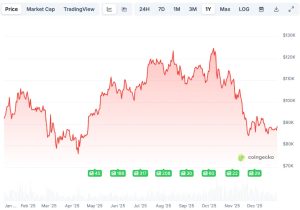Cryptocurrency Regulation: U.S. Laws and Global Developments

Cryptocurrency regulation is emerging as one of the most critical policy debates of the decade. In the United States, lawmakers and regulators are striving to balance innovation with investor protection, while across the globe, jurisdictions are adopting diverse approaches that reflect varying economic priorities and risk appetites. From comprehensive frameworks in the European Union to more cautious strategies in Asia, the evolution of digital asset regulation underscores the complexity of integrating decentralized technologies into traditional financial systems. The outcome of these regulatory efforts will shape the trajectory of global crypto adoption, capital flows, and financial innovation.
U.S. Approach: A Patchwork of Agencies and Laws
The United States currently operates under a fragmented regulatory structure where multiple agencies claim oversight over aspects of the cryptocurrency industry. The Securities and Exchange Commission (SEC) views certain tokens as securities, requiring compliance with strict disclosure and trading rules. Meanwhile, the Commodity Futures Trading Commission (CFTC) asserts jurisdiction over crypto derivatives and commodities-based assets.
This overlapping framework has generated uncertainty for industry participants, with companies often left navigating ambiguous classifications. Calls for a unified federal framework have grown louder, with policymakers acknowledging the need for clarity that fosters innovation while safeguarding consumers and markets.
Global Developments: Diverging Models
Across Europe, the Markets in Crypto-Assets (MiCA) regulation, scheduled for full implementation in 2025, has become a benchmark for structured crypto oversight. The framework standardizes rules for issuance, trading, and custody of digital assets, aiming to provide legal certainty and investor confidence.
In Asia, regulatory strategies vary widely. Singapore has positioned itself as a pro-innovation hub, implementing licensing systems that encourage responsible growth. Conversely, China has taken a prohibitive stance, banning most crypto-related activities while advancing its own central bank digital currency. India continues to deliberate on comprehensive legislation, balancing concerns over capital flight with the economic potential of blockchain technology.
Latin America presents yet another contrast, with countries like El Salvador adopting Bitcoin as legal tender while others, such as Brazil, focus on regulatory sandboxes to test the viability of digital assets under controlled environments.
Economic and Financial Implications
The regulatory choices made by governments will have significant consequences for investment flows and the competitiveness of national economies. Jurisdictions offering clarity and balanced oversight are likely to attract startups, institutional investors, and technological innovation. On the other hand, restrictive regimes may drive crypto activity underground or push capital to more accommodating regions.
In addition, the intersection of cryptocurrency regulation with taxation, anti-money laundering (AML) rules, and cross-border financial flows underscores the importance of international coordination. Without harmonization, regulatory arbitrage may emerge, enabling entities to exploit weaker regimes at the expense of global financial stability.
The Road Ahead: Balancing Innovation and Risk
The central challenge for regulators lies in balancing innovation with systemic safeguards. Cryptocurrencies and blockchain technologies promise efficiency, transparency, and inclusion, but they also carry risks of volatility, fraud, and market manipulation. Policymakers are under increasing pressure to craft legislation that protects consumers without stifling the potential of a transformative technology.
Going forward, closer collaboration between governments, financial institutions, and technology innovators will be crucial. Whether through international standards, regional agreements, or national legislation, the frameworks being shaped today will determine how cryptocurrencies integrate into the global economy.




